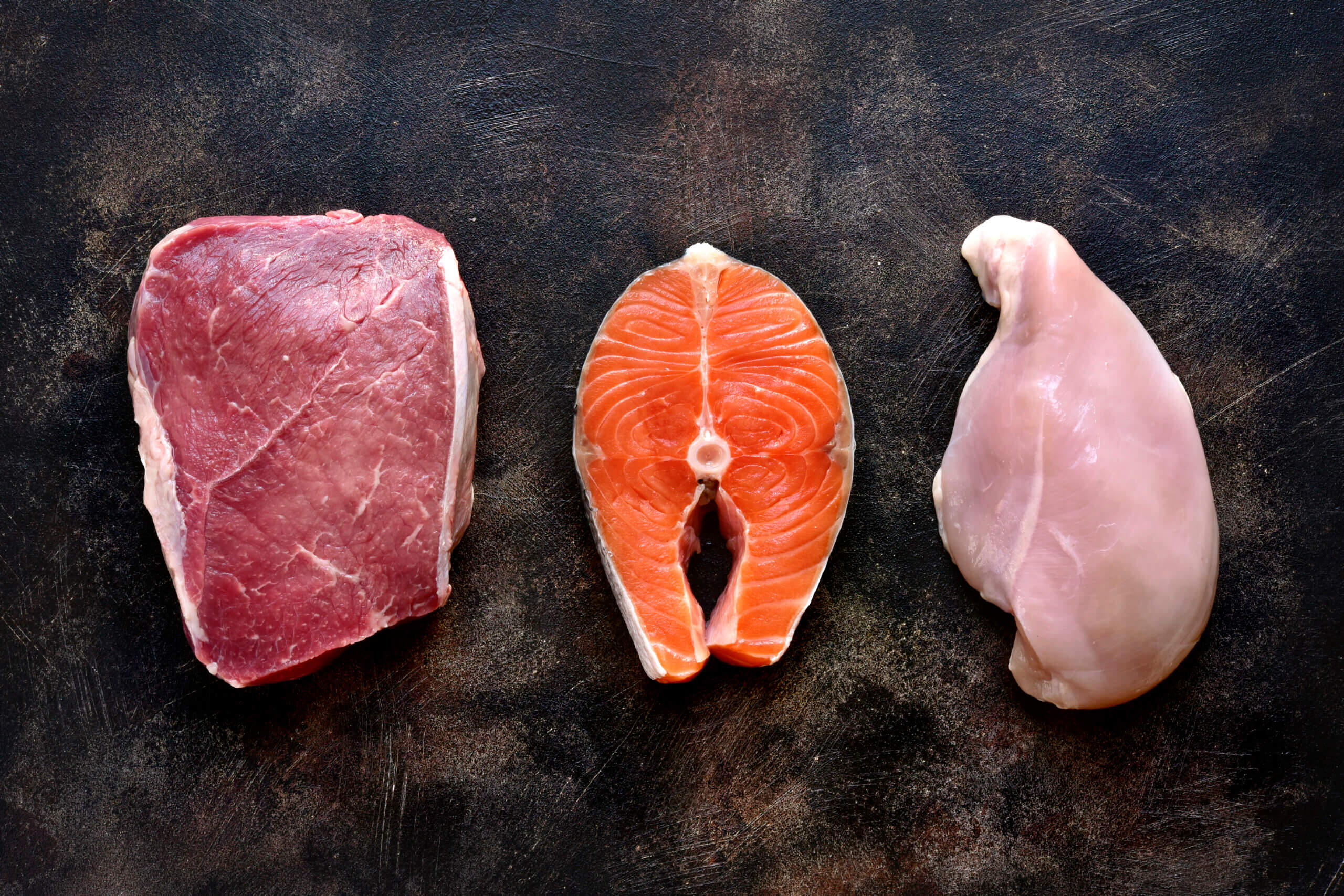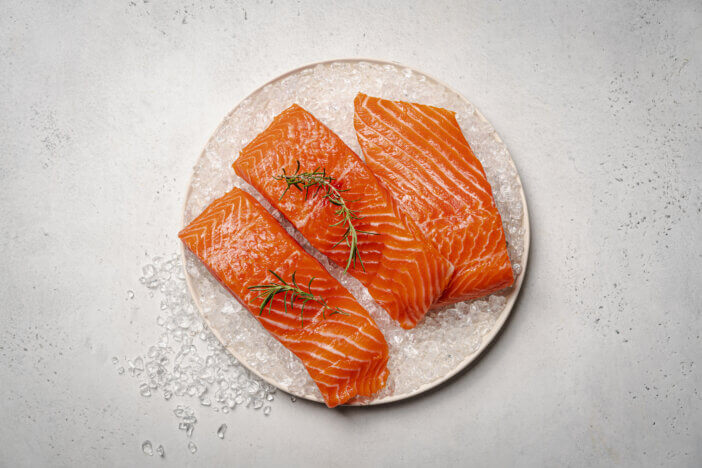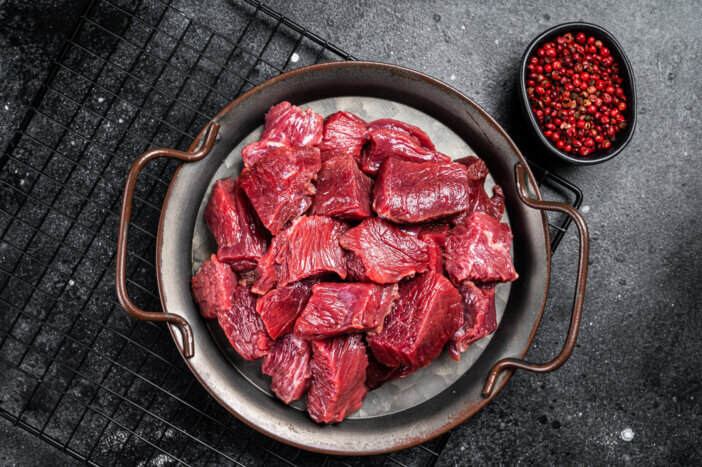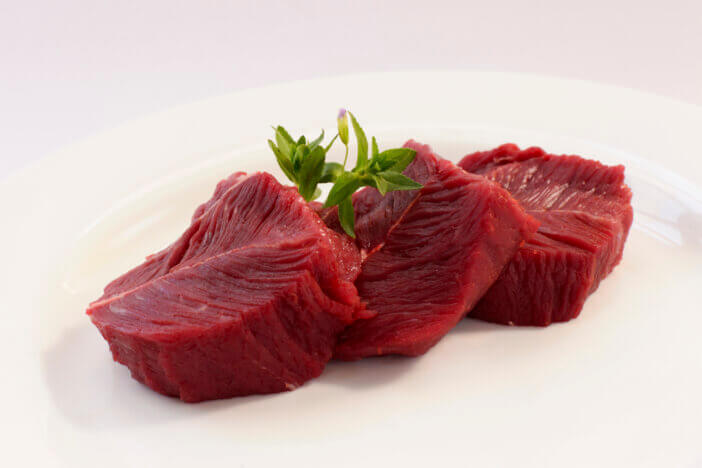11 Low-Fat Meat Options to Boost Your Health
Low-fat meat options like chicken breast, turkey, fish, and more provide high protein, essential nutrients, and delicious flavors for health-conscious individuals.

Health and nutrition are trending topics. Lean meats are popular for their health benefits. They provide high-quality protein and essential nutrients for muscle growth, repair, and maintaining a healthy weight. This blog post will guide you through 11 delicious and nutritious low-fat meat options.
Disclosure: As an Amazon Associate, this site earns from qualifying purchases. Thank you!
1. Chicken Breast

Chicken breast is a favorite among fitness enthusiasts for its high protein content and low fat. A 100-gram serving of chicken breast provides around 30 grams of protein, with only a small amount of fat (NutritionValue). Moreover, chicken breast is also rich in niacin, vitamin B6, and selenium.
These nutrients play a vital role in energy production, brain function, and immune health. Chicken breasts are versatile and can be baked, grilled, stir-fried, or added to salads for a satisfying meal.
2. Turkey

Turkey is another lean meat that is high in protein and low in fat. A 100-gram serving of turkey breast contains about 29 grams of protein (NutritionValue). Besides, turkey is an excellent source of tryptophan, an amino acid that helps produce serotonin, a brain chemical that promotes feelings of well-being and happiness. Additionally, turkey is rich in selenium, which supports thyroid function and boosts the immune system.
3. Fish

Fish, particularly fatty varieties like salmon, mackerel, and sardines, are excellent sources of high-quality protein and omega-3 fatty acids. Omega-3 fatty acids are essential for heart and brain health. A 100-gram serving of cooked salmon provides around 22 grams of protein (NutritionValue). The American Heart Association recommends eating at least two servings of fish each week to reap their health benefits.
4. Skinless Poultry

Skinless poultry, such as chicken or turkey, is a low-fat, high-protein food choice. The skin contains a significant amount of fat, and by removing it, you can drastically reduce the calorie content. For example, a 100-gram serving of skinless chicken breast contains only about 165 calories (NutritionValue). Skinless poultry is versatile and can be used in a variety of dishes, making it easy to incorporate into your diet.
5. Rabbit Meat

Rabbit meat is a lean, high-protein alternative to traditional meats. It has a low-fat content and is rich in vitamins and minerals such as phosphorus, selenium, and vitamin B12. A 100-gram serving of rabbit meat provides around 21 grams of protein (NutritionValue). Rabbit meat has a mild flavor and can be cooked in various ways, including grilling, roasting, or stewing.
6. Venison

Venison, or deer meat, is a lean and nutritious meat option. It’s high in protein, low in fat, and provides essential nutrients like iron, zinc, and vitamin B12. A 100-gram serving of venison provides around 26 grams of protein (NutritionValue). Venison has a rich, gamey flavor and can be used in a variety of dishes from stews to steaks.
7. Bison

Bison meat is another healthy alternative to traditional meats. It’s lean, high in protein, and low in fat. A 100-gram serving of bison provides around 20 grams of protein (NutritionValue). Bison meat is also rich in iron and vitamin B12. It has a similar taste to beef but is often described as having a sweeter, richer flavor.
8. Ostrich

Ostrich meat is a unique lean meat option. It’s high in protein, low in fat and calories, and rich in essential nutrients like iron and zinc. A 100-gram serving of ostrich provides around 22 grams of protein (NutritionValue). Ostrich has a similar texture to beef and can be used as a substitute in many recipes.
9. Low-Fat Beef

Beef can be part of a healthy diet if you choose lean cuts and limit your portion size. Look for cuts with the words “loin” or “round” in the name, as these are typically leaner. A 100-gram serving of lean beef provides around 26 grams of protein (NutritionValue). In addition to protein, beef is also an excellent source of iron and vitamin B12.
10. Tofu

Tofu is a plant-based protein that’s a great alternative for those following a vegetarian or vegan diet. A 100-gram serving of tofu provides around 8 grams of protein (NutritionValue). Tofu also offers several essential nutrients, including calcium, manganese, and selenium. Due to its neutral taste, tofu absorbs the flavors of the ingredients it’s cooked with, making it a versatile addition to various dishes.
11. Legumes
Legumes, such as lentils, chickpeas, and beans, are not only high in protein but also rich in fiber, iron, and potassium. While not strictly meat, they can be used as a meat substitute in many dishes due to their high protein content. For example, a cup of cooked lentils provides about 18 grams of protein (NutritionValue). Incorporating legumes into your diet can help improve heart health, aid weight loss, and manage diabetes.





